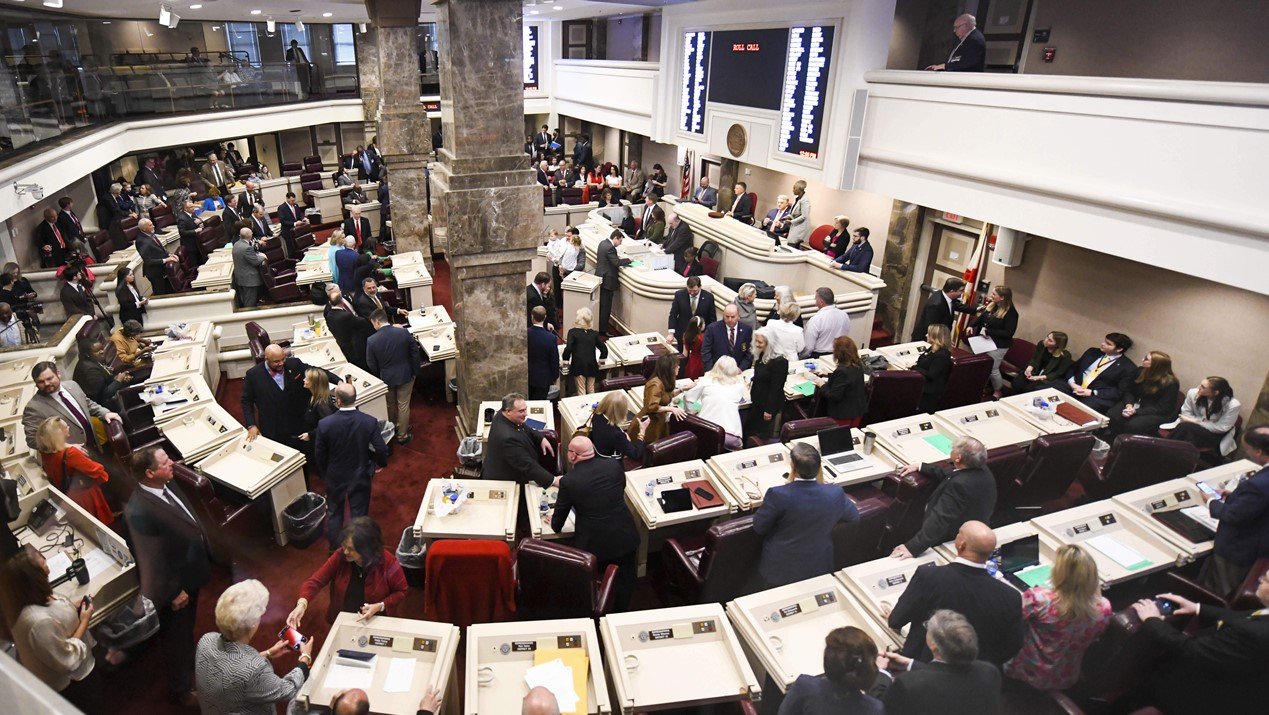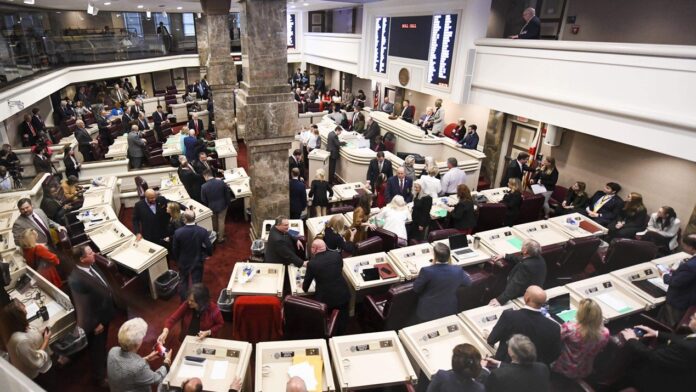
The Alabama Legislature’s efforts to pass heavily debated gaming bills faltered on Thursday, the session’s closing day.
Despite the Alabama House voting in favor of the proposals on April 30, with House Bill 151 (HB 151) passing by a vote of 72 to 29 and House Bill 152 (HB 152) by a vote of 70 to 29, the concurred bills did not proceed to the Senate floor.
Senator Greg Albritton, who sponsored the bills in the Senate, indicated his intention to vote against them after their passage in the House. With Albritton’s decision, the bills fell short of the necessary 21 yes votes for approval, leaving them with 20, the Montgomery Advertiser reported.
Russell Blackshear, the author of both bills, witnessed their approval in the House just hours before the Senate failed to advance them. “I want to publicly thank this body … It’s amazing when you work together as a team, when things don’t have Rs or Ds by their names,” said Rep. Russell after House passage.
The proposed legislation encompassed provisions for a state education lottery, electronic games of chance, traditional raffles, and traditional paper bingo, while prohibiting tables, cards, dice, and dealers.
Under the bills, the Alabama educational lottery would have been exclusively paper-based, with electronic games of chance permitted at seven designated locations statewide. Expansion to additional locations would have necessitated new legislation approved by both legislative bodies and validated by the state’s citizens through voting.
The focus of the lottery was slated for educational funding, with revenues from other gaming activities directed towards general funds. Additionally, Alabamians would have gained access to national lotteries such as Mega Millions and Powerball.
Omitted from the bills was authorization for sports betting, which remained unapproved.
The establishment of the Alabama Gaming Commission, as outlined in HB 152, would have overseen the approved forms of gambling and targeted illegal gambling activities within the state. Furthermore, the legislation would have mandated Governor Kay Ivey to negotiate a compact with the Poarch Band of Creek Indians, limiting their in-person gaming activities on tribal land.
Notably, the last time gaming appeared on an Alabama ballot was in 1999, resulting in its statewide defeat.
Governor Ivey expressed her decision against convening a special session to address the gaming bills.
Original article: https://www.yogonet.com/international/noticias/2024/05/13/72133-alabama-legislature-fails-to-pass-gambling-bills-on-final-day-of-session














